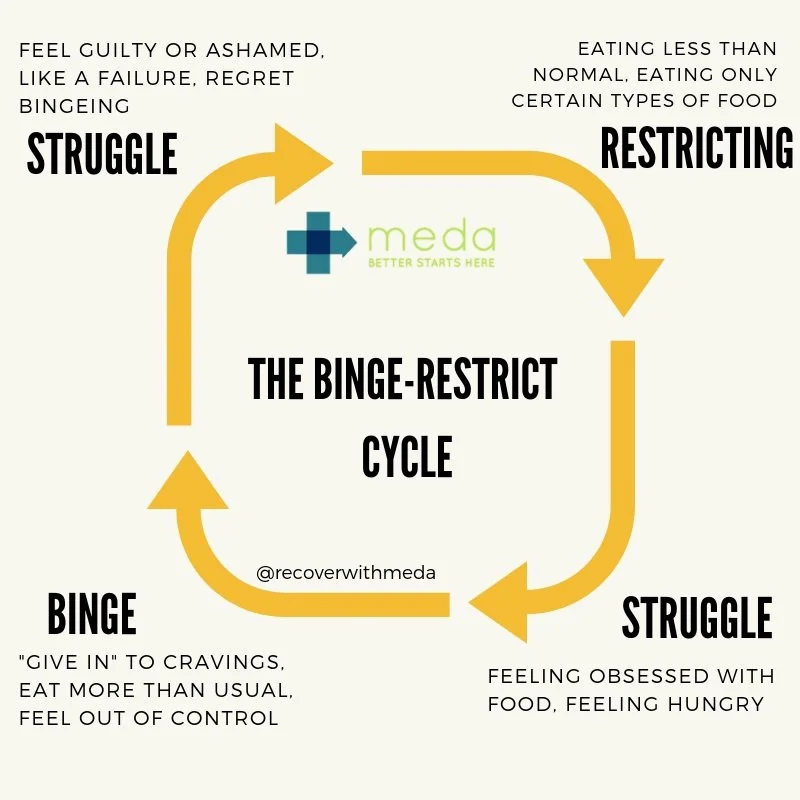Under Eating Is and Isn’t the Problem
By Coach Elise Perez
There are plenty of myths and widely spread misconceptions about fitness and nutrition.
We are all guilty of believing these false ideas at one point in our health journeys. But we have to educate ourselves around these ideas and find what makes the most sense for us as individuals.
Have you ever heard someone say: Undereating causes you to gain weight or fat? Or undereating stops or slows fat loss?
This is not completely incorrect, but not for the reasons many people think.
First, let’s talk about the ways this is incorrect:
Undereating does not…
Cause your body to hold onto fat
Damage your metabolism (this is extremely rare and only seen in very drastic and long-term cases of aggressive calorie restriction)
Cause you to burn less calories
If you think about people in the world who are genuinely starving, do they appear to be overweight or holding onto fat?
Let’s leave it at that and move on to how this statement can actually be true:
Eating too little often leads to a restrict then binge cycle.
It begins in an attempt to lose weight by restricting food intake. The body becomes depleted of the fuel it needs and results in extreme hunger and obsessive thoughts about food and eating. This leads someone to become more susceptible to binge eating, which then leads to feelings of guilt, shame and fear about food and body image. These feelings create an urge to restrict again and restart the cycle all over.
The continuous surplus of calories that comes with this vicious cycle is what can cause fat gain and the inability to control it over time. Not to mention the psychological toll this can take on a person.
Here are some ways to break the cycle:
1. Spread your food intake throughout the day; try to eat within 1-2 hours after waking up and every 3-4 hours after that, depending on what and how much you eat in one meal. This can help keep you satiated and maintain your energy levels, mood, concentration, stamina, etc.
2. Consume a mix of macronutrients (carbohydrate, protein, fat) for most meals and snacks to satisfy and sustain you throughout the day. And of course fruits and veggies!
3. Incorporate any foods you restrict yourself from eating. Eat in a way that helps you feel in control with a version of the food you currently feel comfortable with by deciding when and how much to eat.
5. Identify triggers that lead to overeating, such as physical (i.e. overly hungry, tired), emotional (i.e. stressed, sad), or situational (i.e. lonely, bored), and consider what can be changed.
6. Honor your hunger and eat the same amount of food as usual throughout the day after you overeat/binge. This may seem counterintuitive and you may want to resist. However, restricting your food intake, skipping meals or snacks, or waiting to eat when hungry sets you up to repeat the restrict-binge cycle.
7. Use your support systems of family members, friends, a therapist or coach.
That’s what we’re here for!

